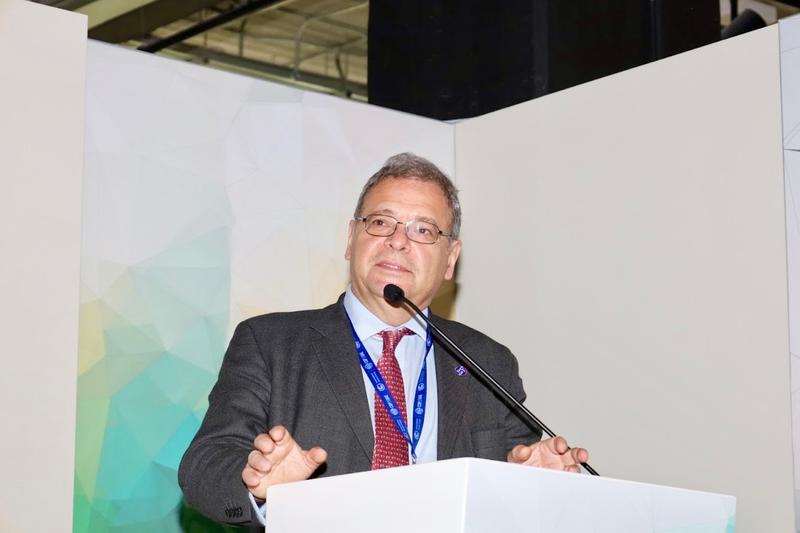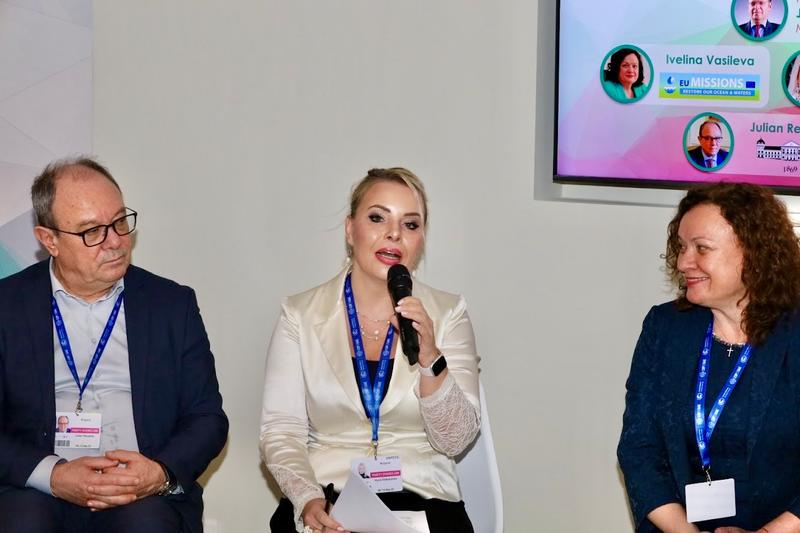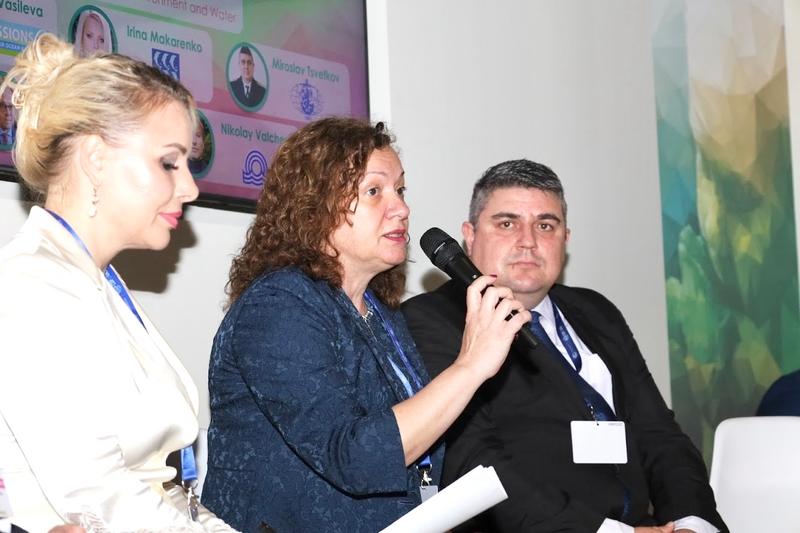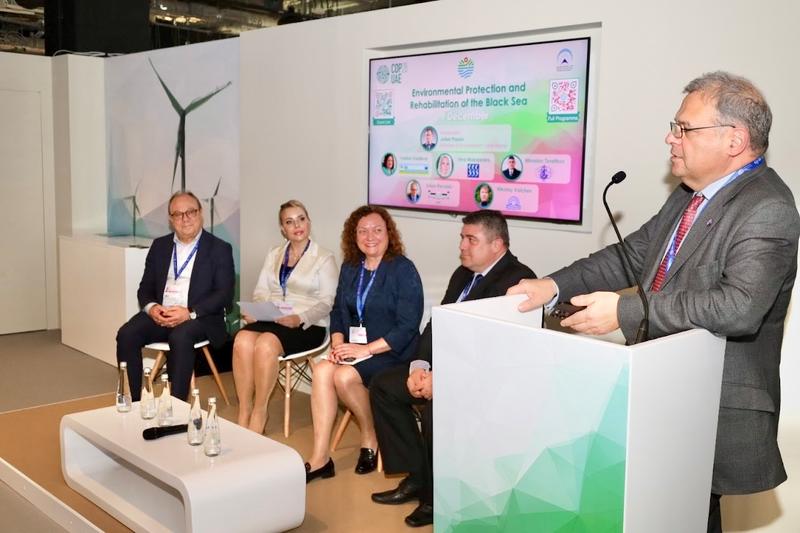BLACK SEA RESTORATION WAS DISCUSSED AT THE BULGARIAN PAVILLION AT COP28 BY MINISTERS, SCIENTISTS, AND REPRESENTATIVES OF INTERNATIONAL ORGANIZATIONS
The impact of climate change on the specificity of the Black Sea was discussed by scientists and representatives of international organizations at a discussion organized by the Ministry of Environment and Water (MoEW) at the Bulgarian pavilion of COP28 in Dubai.
The Minister of Environment and Water Julian Popov opened the discussion, which brought together Zaritsa Dinkova - Minister of Tourism, Ivelina Vassileva - former Minister of Environment and representative of the EU mission "Restoring our oceans and waters", Irina Makarenko - Pollution Monitoring and Assessment Officer at the Permanent Secretariat of the Black Sea Commission, acad. Julian Revalski - President of the Bulgarian Academy of Sciences (BAS), prof. Miroslav Tsvetkov from the Varna Naval University and prof. dr. Nikolay Valchev, Director of the Institute of Oceanology at the Bulgarian Academy of Sciences, who joined online.
The Black Sea is one of the seas that have preserved a rich archaeological history, but 90 percent of it is dead, said Minister Julian Popov and pointed out that this is one of the biggest scientific challenges. Minister Popov stressed that the Black Sea will be one of the focal points of the green restoration initiative for Ukraine, whereby Bulgaria is one of the initiators.
Tourism Minister Zaritza Dinkova highlighted the good partnership with Minister Julian Popov since COP27. She expressed the opinion that tourism is an eco-intensive activity and Bulgaria has huge potential to establish itself as a sustainable tourist destination. According to her, the government needs a scientific assessment for the cleanliness of the waters and added that the waters of the Black Sea have never been so clean. We have over 20 blue flag beaches but there is a lot to be done against plastic pollution, we need to educate both tourists and people in the industry, she said.
Acad. Julian Revalski presented the activities of the Bulgarian Academy of Sciences, in particular the work of two of the 42 institutes on Black Sea research. The Institute of Oceanology and the Institute of Biodiversity and Ecosystem Research study the impact of climate change on the state of the sea. They are committed to monitoring the Black Sea and the conservation of marine ecosystems in NATURA 2000 under European directives.
Acad. Revalski commended Minister Julian Popov for advocating for the practice of obtaining scientific advice when important policy decisions need to be made and for encouraging his colleagues in the Council of Ministers to seek the views of scientists in their work.
The Black Sea is a European sea, Ivelina Vassileva stressed. It is rich in historical and cultural heritage, ten rivers flow into it. But it is also exposed to climate change, resulting in rising sea levels, erosion, chemical pollution, microplastics, noise. She pointed out the opportunities to use various international instruments to save the Black Sea - the Bulgarian legislative framework, the European mission "Restoring our seas and waters", national and regional alliances, the EU's Horizon Europe programme, European investment instruments, which together give access to €500 million to improve the state of Europe's seas and waters.




